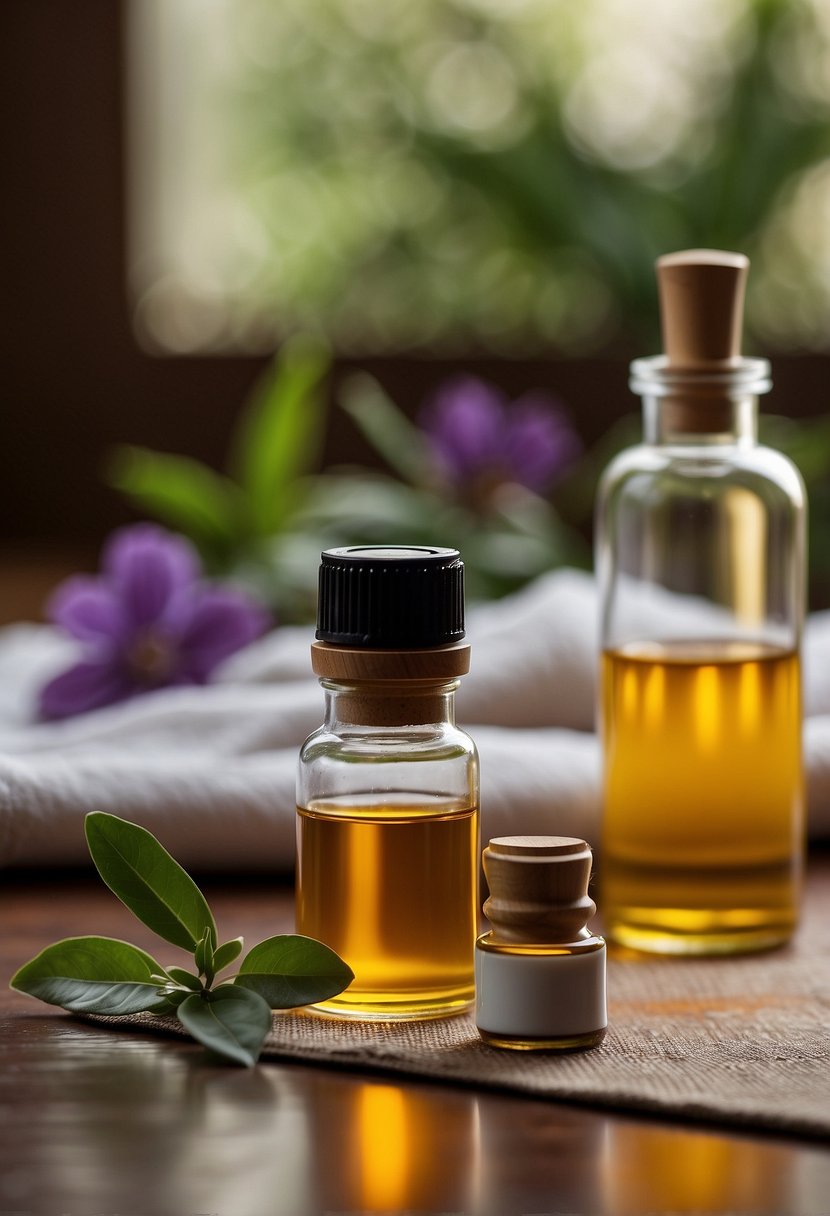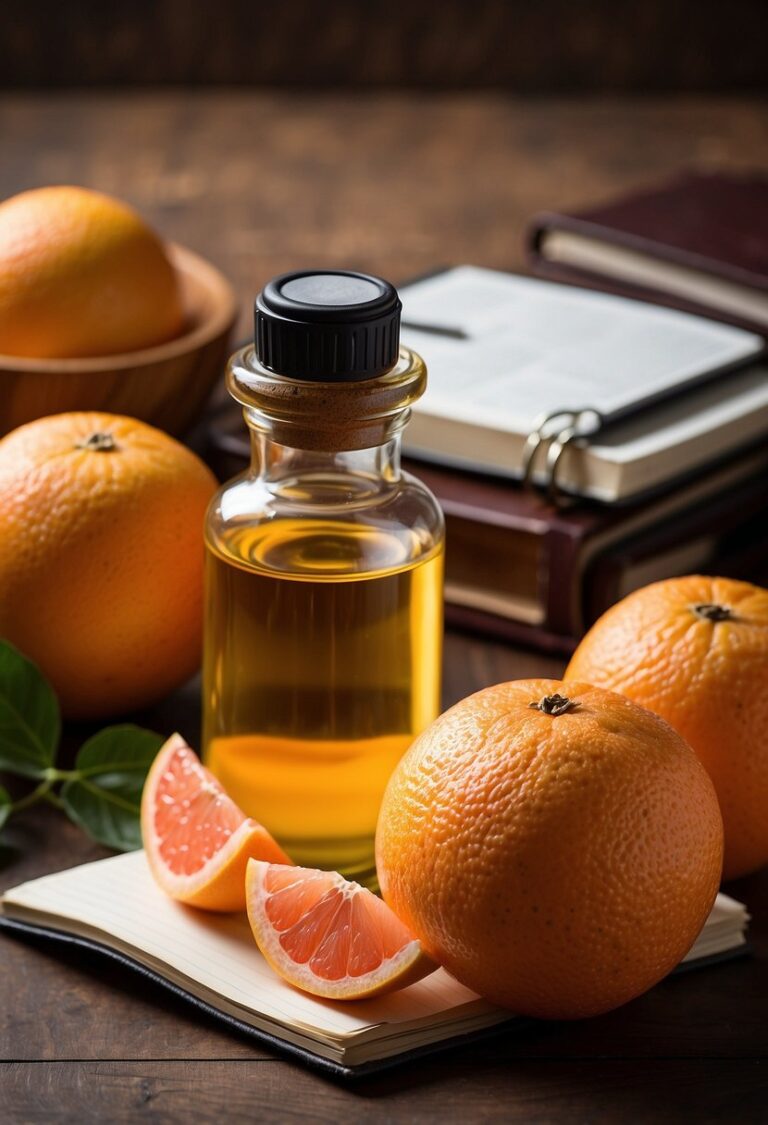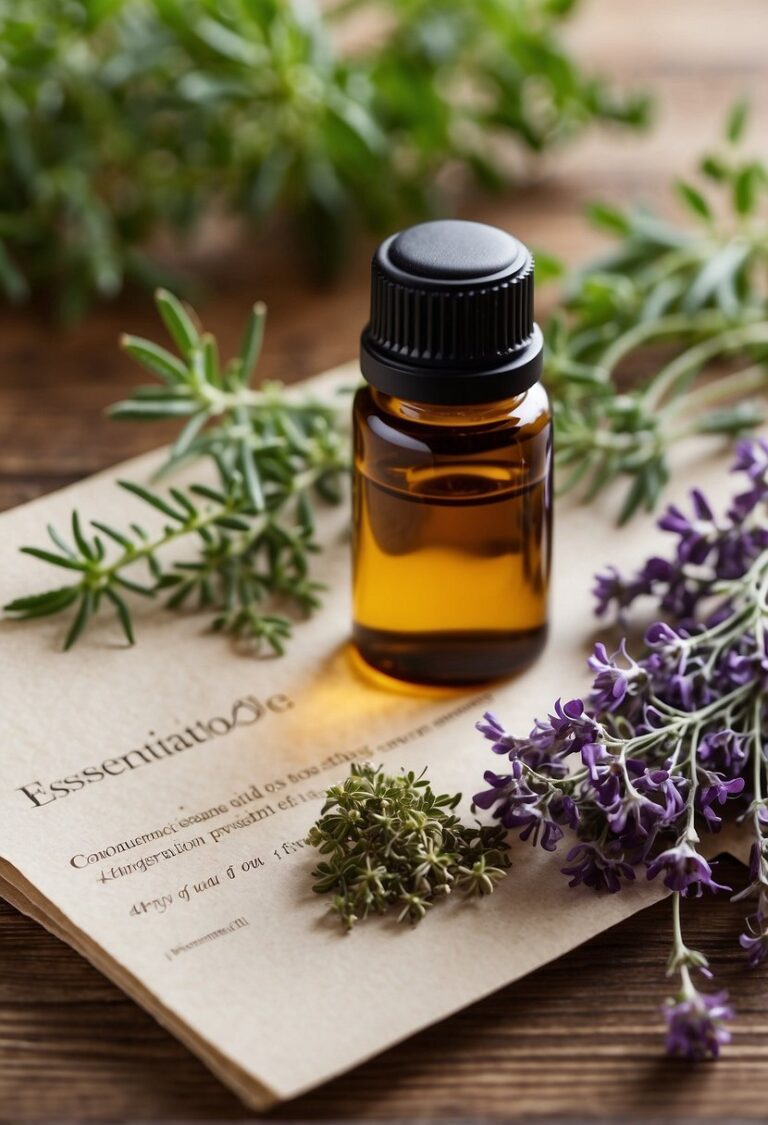What Essential Oil Helps with Muscle Pain?
If you’re someone who experiences muscle pain, you know how debilitating it can be. It can affect your daily routine and make it difficult to perform even the simplest of tasks. While there are many remedies out there, essential oils have been gaining popularity as a natural way to alleviate muscle pain. In this article, we’ll explore some of the best essential oils for muscle pain relief.

Essential oils are highly concentrated plant extracts that are known for their therapeutic properties. They have been used for centuries to treat a variety of ailments, including muscle pain. When used correctly, essential oils can help reduce inflammation, soothe sore muscles, and promote relaxation. But with so many different types of essential oils available, it can be difficult to know which one to use for muscle pain relief. In the next section, we’ll take a look at some of the best essential oils for muscle pain and how to use them.
Best Essential Oils for Muscle Pain

If you’re looking to soothe sore muscles naturally, essential oils may be just what you need. Essential oils are highly concentrated plant extracts that can be used for a variety of purposes, including pain relief. Here are some of the best essential oils for muscle pain:
Lavender Oil
Lavender oil is known for its calming properties, but it can also help to ease muscle pain. It has anti-inflammatory and analgesic (pain-relieving) properties that can help to reduce muscle soreness and stiffness. You can apply lavender oil topically by diluting it with a carrier oil like coconut oil or jojoba oil, or you can add a few drops to a warm bath.
Peppermint Oil
Peppermint oil is another great option for easing muscle pain. It has a cooling effect that can help to reduce inflammation and numb the pain. Peppermint oil also has antispasmodic properties, which means it can help to relax muscle spasms and cramps. You can apply peppermint oil topically by diluting it with a carrier oil, or you can inhale it by adding a few drops to a diffuser.
Eucalyptus Oil
Eucalyptus oil is a powerful anti-inflammatory that can help to reduce muscle pain and stiffness. It also has analgesic properties that can help to numb the pain. Eucalyptus oil is often used in massage therapy to help ease muscle pain and tension. You can apply eucalyptus oil topically by diluting it with a carrier oil, or you can inhale it by adding a few drops to a diffuser.
Rosemary Oil
Rosemary oil is another great option for easing muscle pain. It has anti-inflammatory and analgesic properties that can help to reduce muscle soreness and stiffness. Rosemary oil is also known for its ability to improve circulation, which can help to speed up the healing process. You can apply rosemary oil topically by diluting it with a carrier oil, or you can inhale it by adding a few drops to a diffuser.
Overall, essential oils can be a great natural alternative to traditional pain relief methods. However, it’s important to keep in mind that essential oils should be used with caution and always diluted properly before use. If you have any concerns or questions about using essential oils, it’s best to consult with a healthcare professional.
How to Use Essential Oils for Muscle Pain

If you’re looking for a natural way to relieve muscle pain, essential oils can be a great option. Here are some ways to use them:
Topical Application
One of the most common ways to use essential oils for muscle pain is through topical application. You can mix a few drops of essential oil with a carrier oil, such as coconut or jojoba oil, and apply it directly to the affected area. Some of the best essential oils for topical application include peppermint, lavender, and eucalyptus oil.
Hot or Cold Compresses
Another way to use essential oils for muscle pain is through hot or cold compresses. You can add a few drops of essential oil to a bowl of hot or cold water, soak a washcloth in the mixture, and apply it to the affected area. This can help to reduce inflammation and ease pain. Some of the best essential oils for compresses include chamomile, rosemary, and black pepper oil.
Bath Soaks
Finally, you can also use essential oils for muscle pain by adding them to a bath soak. Simply add a few drops of essential oil to a warm bath and soak for 20-30 minutes. This can help to relax your muscles and ease pain. Some of the best essential oils for bath soaks include marjoram, peppermint, and lavender oil.
Remember to always dilute essential oils with a carrier oil before applying them to your skin, and to test a small patch of skin before using them more widely. If you experience any adverse reactions, stop using the oil immediately.
Safety Tips and Considerations

When using essential oils for muscle pain, it’s important to keep in mind some safety tips and considerations to avoid any adverse reactions. Here are some things to consider:
Dilution Guidelines
Essential oils are highly concentrated and should always be diluted with a carrier oil before applying them to your skin. A general rule of thumb is to use a 2% dilution, which means adding 12 drops of essential oil to 1 ounce of carrier oil. Some oils, like peppermint and wintergreen, are more potent and should be used in even lower dilutions.
Skin Patch Test
Before using any essential oil, it’s important to perform a skin patch test to check for any allergic reactions or skin irritation. To do this, dilute the essential oil in a carrier oil and apply a small amount to the inside of your wrist or elbow. Wait 24 hours and check for any redness, itching, or swelling. If you experience any of these symptoms, do not use the oil.
Consulting Professionals
If you’re pregnant, nursing, or have any medical conditions, it’s important to consult a healthcare professional before using essential oils. Some oils can be harmful during pregnancy or may interact with medications. Also, if you’re new to essential oils, it’s a good idea to consult with a certified aromatherapist for guidance on safe and effective use.
By following these safety tips and considerations, you can enjoy the benefits of essential oils for muscle pain without any negative side effects.



